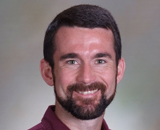 Edward Davies hits the nail on the head: “The fear of both patient and doctor can sometimes override the best knowledge, research, and information known to man.”
Edward Davies hits the nail on the head: “The fear of both patient and doctor can sometimes override the best knowledge, research, and information known to man.”
I do not think, however, that it is just fear of getting sued that drives us physicians towards over-testing and overdiagnosis. Rather, it is existential fear of uncertainty, of the unknown, of the abyss, of death itself. As physicians we are taught many and various ways to help people and hopefully make them better, but we are less well equipped to deal with that which is beyond our medical skills.
To the extent that medicine is a “healing” profession, we have our agenda for what to do based on the illnesses and traumas our patients bring to us. Healing is organized around addressing a presenting problem, and medicine has, over the centuries, become quite good at being able to “fix” bodies that are broken.
There are often times, however, when we cannot fix what is wrong or repair what is broken. Several years ago, I was reminded of the aphorism, “To cure sometimes, to relieve often, to comfort always,” which originated in the 1800s with Edward Trudeau, founder of a tuberculosis sanatorium at a time when it really was only “sometimes” that physicians cured disease and just a bit more often that they relieved suffering—but nevertheless, they still had a role in comforting.
Comforting presents different challenges in different situations. When confronted with a patient who is suffering, comforting may mean prescribing analgesia, mending a broken limb, listening to a depressed patient, or simply being a human presence, or holding a hand.
When the issue is uncertainty, however, or fear of the unknown—which is what I think drives much of overdiagnosis—the challenge is entirely different. How does one “fix” a suffering or broken soul? When we are uncertain of a diagnosis, or what to tell a patient about their prognosis, or what to do next to help find an answer, we are facing our human limitations and are ultimately facing our fears regarding “what happens if this could be life-threatening or fatal?”
We may be fearing for our patients, or we may be projecting our own fears of uncertainty onto our patients—regardless, when the issue is wondering whether or not to do more testing, I think the fundamental driving force is a human fear, which we share with our patients, of what will happen if there is a lurking problem that threatens one’s very existence. Here, we move beyond the ability of medicine to “fix,” and we most certainly move beyond the ability of tests to reassure. In fact, for patients at relatively low risk of disease, who just want “to be sure I’m OK,” the literature indicates testing emphatically does NOT decrease their anxiety, or resolve their symptoms.
Reassurance in the face of existential uncertainty falls not in the realm of medicine, but of spirituality and religious belief. It has to do with our fundamental understandings of what existence is about and where it is going, and in medicine there is typically neither the vocabulary nor the training to deal with these concerns on a professional level. (Yes, there are many scholars and practitioners actively engaged in exploring the interfaces between spirituality, religion, and medicine, and some helpful resources have been produced—but engaging that scholarship is far beyond what I can tackle here!)
What we as physicians, whether spiritual or not, whether comfortable as counselors or not, need to recognize is that the underlying fears that may drive our patients or we ourselves to seek more and more testing and reassurance, have to do with concerns that by their nature cannot be addressed by medicine.
We are all human. We all, sooner or later, face not just the fear of mistake, or the fear of the lawyer’s summons, but the existential fears and questions of “what lies ahead” and “where am I going?”
We doctors need to do our best to cure, relieve, and comfort, but we also need to find ways to help our patients seek the proper channels for addressing their fundamental existential questions about life. Medicine may heal or comfort, but only faith gives hope.
Competing interests: I declare that I have read and understood the BMJ Group policy on declaration of interests and I have no relevant interests to declare.
William E Cayley Jr practises at the Augusta Family Medicine Clinic, teaches at the Eau Claire Family Medicine Residency, and is a professor at the University of Wisconsin, Department of Family Medicine.
